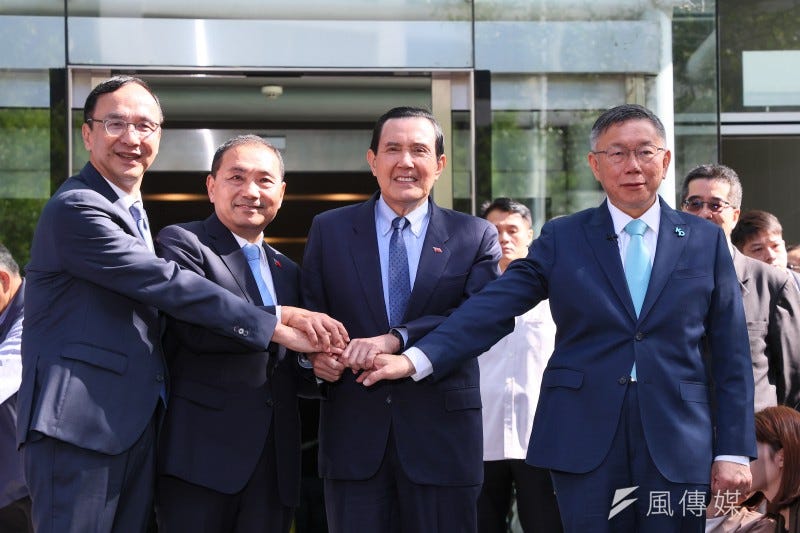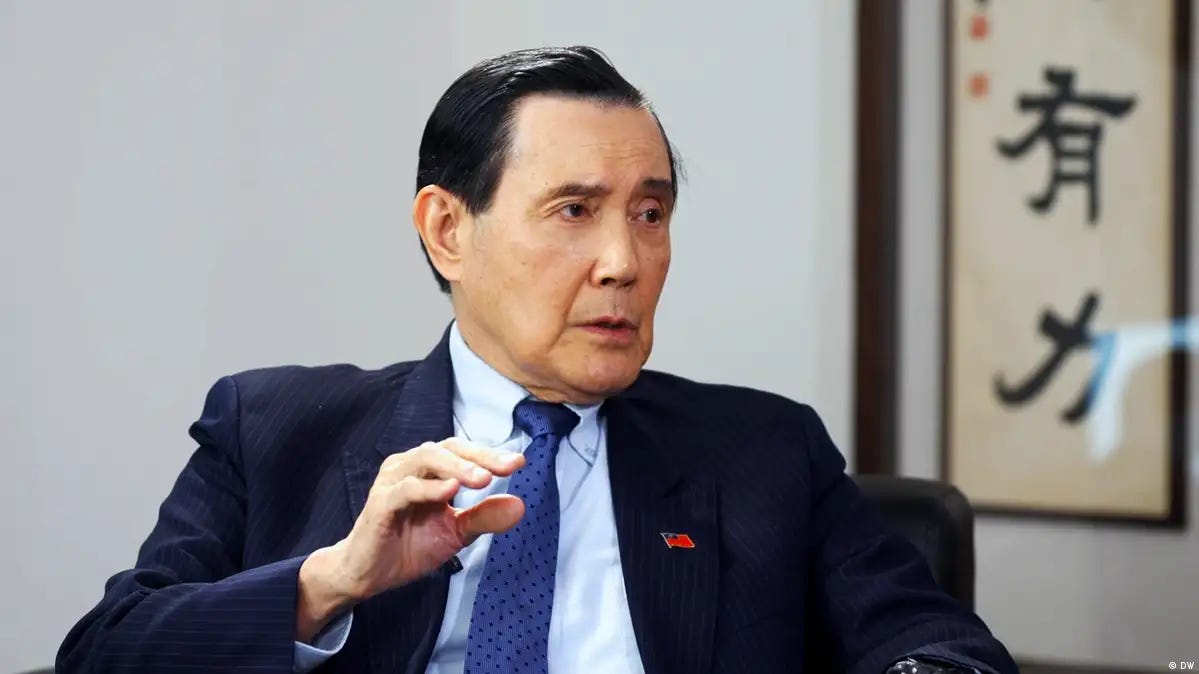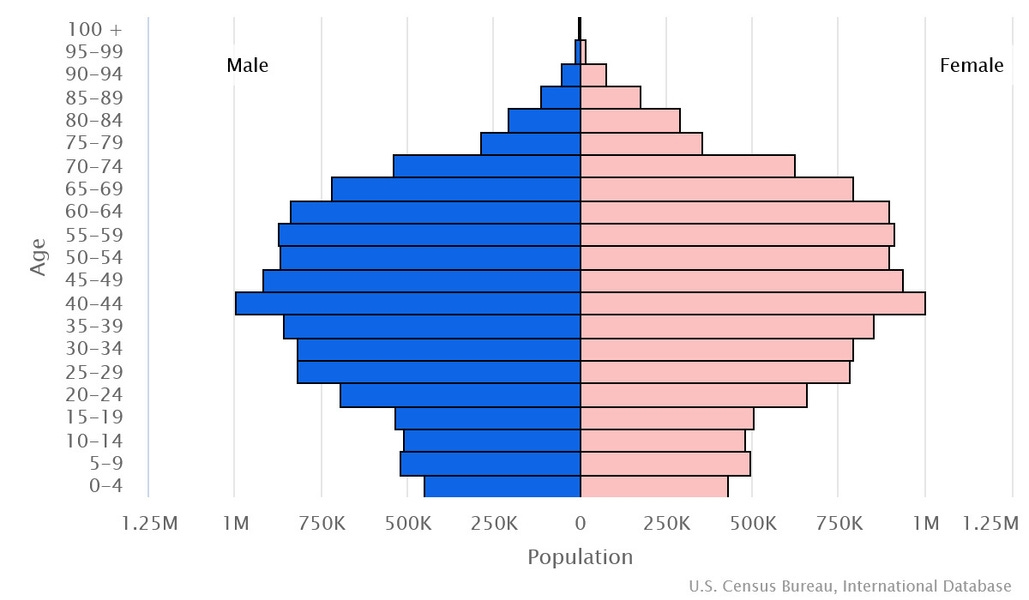Taiwan Election Results: How Lai won, what China thinks, and what’s at stake for the DPP
Plus: Everyone loses the legislature!
Current VP William Lai Ching-te 賴清德 of the Democratic Progressive Party will become the next president of Taiwan on May 20. With 69.24% voter turnout, he won handily with just over 40% of the vote — the KMT’s Hou Yu-ih 侯友宜 took 33.49%, while Ko Wen-je 柯文哲 of the Taiwan People’s Party received 26.46%.
Meanwhile, the DPP lost control of the 113-seat legislature, falling from 61 to 51 seats. The KMT won 14 seats, from 38 to 52 seats, and the TPP picked up 5 more, from 3 to 8 seats. So the TPP will have considerable leverage going forward, as the DPP or KMT will need it to hop on any non-bipartisan bill to pass the 57-vote majority threshold.
Lai’s victory and the DPP’s loss in the legislature make sense: this election was, at least in part, a referendum on eight years of DPP governance — and simultaneously, Ko screwed the pan-Blue by splitting the vote. Hou and Ko together earned 59.95% of the vote, indicating that voters were interested in a change of administration. But since Taiwan runs a first-past-the-post electoral system, Lai could still take home the victory with a only minority of voters, just as Chen Shui-bian 陳水扁 of the DPP did in 2000. (Ko was 40 years old on that election day — certainly old enough to remember and internalize that running a third-party candidacy is shooting yourself in the foot.)
In fairness to Ko, he outperformed expectations — some didn’t think he would capture more than 20%. Anecdotal evidence (ballots are cast anonymously) suggests to me that voters who didn’t want more DPP governance but who would rather not vote KMT used Ko as a throwaway vote. Also, in terms of social media presence, Ko dominated Lai and Hou, so kudos to his campaign staff!
The PRC’s Taiwan Affairs Office released a short comment (no pronounced military action, yet…):
The outcomes of the Taiwan [presidential and legislative] elections show that the DPP cannot represent the mainstream public opinion on the island. Taiwan is China’s Taiwan. This election cannot change the basic structure and development direction of cross-Strait relations, cannot change the common aspiration of compatriots across the Taiwan Strait to form closer ties, and cannot impede the inevitable trend of the motherland’s unification.
Our position on resolving the Taiwan question and achieving national unification is consistent, and our determination is rock-solid. We will adhere to the “1992 Consensus,” embody the one-China principle, firmly oppose the separatist activities and foreign interference aimed at “Taiwan independence,” work with relevant political parties [ie. definitely not the DPP], groups, and people from various circles in Taiwan to promote cross-Strait exchanges and cooperation, deepen cross-Strait integrated development, jointly promote Chinese culture, and promote the peaceful development of cross-Strait relations and the great cause of unification with the motherland.
The most charitable reading of the bolded line is that nearly 60% of voters didn’t cast ballots for Lai. That’s true. But Taiwan’s democracy is new enough that a substantial number of today’s voters were there in the late 1980s and early 1990s when Taiwan became a democracy, and the people chose a first-past-the-post schema. If they would rather have a different electoral system, they could make a change. In fact, they’ve done so before: in 2005, the ROC Constitution was amended to elect 34 Legislative Yuan seats via a Proportional Representation (PR) party vote, not FPTP; that system has been in place since 2008. (Notably, the DPP signed onto these voting changes knowing full well it would hurt them in the near-term — and it did: the pan-Blue won a supermajority, 86 out of 113 seats, in 2008.)
As in most elections, the days running up to January 13 were full of pre-election shenanigans. I’ll flag two here:
First, Tuesday, January 9: Taiwanese phones flashed a bilingual alert from the Ministry of National Defense (MND), rather innocuously announcing in Chinese, “China launched a satellite [衛星] at 3:04 p.m., which has flown over Vietnam. Everyone, please pay attention to safety. If an unknown object is found, notify the police or fire department [so they can] handle it.” But the English text unfortunately read,
[Air raid Alert] Missile flyover Taiwan airspace,be aware.
The KMT rhetorically asked whether this alert was misinformation or part of a DPP campaign strategy to stoke fear in the voters — noting the absence of any MND alerts during Nancy Pelosi’s visit to Taiwan in August 2022, even though actual missiles flew over the island then. The mayor of Taipei, KMTer Jiang Wan-an 蔣萬安, called for DPP resignations: “Is this national alert ‘selling dried mangoes’?” Selling “dried mangoes” — 芒果乾 máng guǒ gān — is a pun on 亡國感 wáng guó gǎn, which refers to the feeling that one’s country is humiliated or defeated. (Pan-Blue newspaper United Daily News 聯合報 tags some of its articles with #亡國感.)
For its part, the MND clarified that it just wanted the public aware of possible falling debris, before adding,
The alert messaging is based on national security considerations and is processed in a professional manner by a delegated authority. It is not affected by or subject to any party politics. … On the mistaken English wording of this specific notification, the MND extends an apology to the public and will conduct an internal review to refine the procedure.
And second, Wednesday, January 10: Former Taiwan president and KMT star Ma Ying-jeou 馬英九 sat for an English-language interview with DW’s Chief International Editor, Richard Walker — and probably made Hou want to crawl into fetal position. Walker put together an excellent thread with the highlights. Ma’s unusually free-flowing pessimism toward Taiwan’s future prospects stunned many viewers. In addition to saying “you have to” trust Xi Jinping to manage cross-Strait relations and openly doubting the US’s willingness to aid Taiwan in a hot conflict, he said things like,
If you look at what I did when I was president, we didn’t spend that much on military, because we have established dialogue with mainland — not just for higher-up levels, but for all the ministries.
On ChinaTalk last month, that’s precisely what DPP protégé Lin Fei-fan 林飛帆 accused the KMT of doing during the Ma administration — prioritizing dialogue at the expense of defense and deterrence — and what Professor Lu 盧業中 qualified as an unfair characterization. So it wasn’t a good look for a former KMT president to be saying the quiet part out loud. Ma was quickly uninvited from an election-eve KMT rally. And to his everlasting credit, Hou told reporters at a press conference that “many of Ma Ying-jeou’s past positions are different than my own,” and promised that he wouldn’t touch the issue of unification if he were president.
Of course, all eyes were on the CCP for possible election interference. Lai claimed on January 9 that “China meddles every time Taiwan holds elections, but this time it is the most serious we have ever seen.” Hou quipped back, “Do they want to accuse China of election interference again? Or is the DPP just using the Chinese Communist Party to scare our people?”
I was waiting (with morbid anticipation) for some CCP bureaucrat in the Taiwan Affairs Office or UFWD or somewhere to seriously muck it up — as they did in 2016 with the corporate-forced groveling apology of Taiwanese K-pop singer Tzuyu 周子瑜, or as happened more broadly following the imposition of the 2020 Hong Kong national security law and the death of “one country, two systems.” Happily for democracy and sadly for our collective entertainment, the CCP’s influence over the elections was not obviously manifest in any one-off episode; the DPP’s self-inflicted missile alert was probably closer to that. Rather, it seems China stuck to its usual playbook of mobilizing the jingoistic netizens and yelling from the podium.
To be sure, the CCP arguably intervened in the short-lived candidacy of billionaire Foxconn founder and KMT-nominee-wannabe Terry Gou 郭台銘, when Foxconn suddenly became the target of a Chinese tax probe on Sunday, October 22. Gou abruptly canceled his planned appearances for that week; then two days before the candidate registration deadline, Foxconn received a chintzy $2,800 fine for “overstating expenses.” Gou withdrew his candidacy hours before the deadline was up.
Too bad the CCP didn’t have any strings to pull on Ko’s candidacy: inasmuch as the CCP desperately wanted the KMT to win, Ko was the real spoiler. I still just can’t get over Ko’s abject stupidity or egotism in refusing to join his ticket with the KMT, and his obvious bad faith in accusing the KMT of “doubling” the margin of error (that’s how “plus or minus” works) so he could pull out of a KMT+TPP ticket. And with the failure of the “blue-white alliance” 藍白合, there’s now talk of a “green-white alliance” 綠白合 in the legislature. Just make up your mind, Ko.

(As an aside: apparently someone at the American Institute in Taiwan, the US’s de facto embassy in Taipei, called Ko to ask if China was pushing for the Hou-Ko alliance — leading to accusations that the US is the real election meddler.)
As important as it is, the China angle can explain only so much of the outcome. For starters, the KMT’s Hou was hardly a dream candidate for China. For instance, Hou and long-time pro-unification VP runningmate Jaw Shaw-kang 趙少康 deemed “one country, two systems” “a failure,” with Jaw citing Hong Kong’s recent District Council elections — with no opposition candidates, “patriots only” in the race — as a prime example. I was overall really impressed with Hou’s pragmatism and seeming non-naïveté toward China today. So while China prefers the KMT to the DPP, the candidate China prefers doesn’t matter as much to Taiwanese voters as one may think, because fundamentally China doesn’t like either of them. Rather, as David Sacks (as well as Lin Fei-fan) articulated, Taiwan’s “very existence” as an ethnically Chinese democracy is the threat, just as Hong Kong’s democracy per se was the threat.
More importantly, Taiwanese voters had plenty of issues at home to consider — and as mentioned above, this election was in part a referendum on eight years of DPP governance. A crushing population pyramid, high-priced real estate, bleeding universities and stagnant wages, the length and quality of mandatory military conscription, nuclear power and energy self-sufficiency, and more were top-of-mind.
Further, as Paul Huang wrote in Foreign Policy shortly before election day, voters would also be considering various political scandals in their voting calculus:
Some notable scandals include academic misconduct among DPP politicians, such as DPP’s former Taoyuan City 桃園 Mayor Cheng Wen-tsan 鄭文燦, who was alleged to have committed plagiarism in his graduate thesis and had his degree embarrassingly revoked by National Taiwan University after an investigation. [Plagiarism at elite universities having a real global moment…] Inexplicably, Tsai promoted Cheng to become the vice premier of the government even after the scandal, which certainly did not help the DPP’s public image in this election cycle.
In another case, a DPP legislator named Chao Tien-lin 趙天麟, who positioned himself as a rising star who was tough on China, turned out to have had a yearslong extramarital affair with a mainland Chinese mistress. The scandal was another humiliation to the DPP, and Chao was forced to drop out of his reelection campaign. His district in Kaohsiung City 高雄 is now considered a key battleground that the KMT has a chance of flipping. [In that race, the DPP candidate who replaced Chao and ran a 70-day blitz campaign, Huang Jie 黃捷, ended up winning, beating Chen Mei-ya 陳美雅 of the KMT.]
Indeed, it seems that voters were largely dissatisfied with the DPP’s recent governing record — hence the results in the Legislative Yuan — and absent a spoiler like Ko, the DPP may well have lost the presidency, too.
Nonetheless, with Lai assuming the presidency in a few months, what will his legacy be? If anything, I’m betting that he will make his mark on domestic policy. Maybe he’ll work on some progressive social project, like expanding the welfare state or subsidizing housing or developing renewable energy. Maybe he’ll address the population crisis by finding a way to increase birthrates or opening the door for more immigration. Only he knows.
We have a good sense of what to expect from his foreign policy:






